How ecotourism benefits the environment and local communities
Ecotourism is all about respecting the local culture and environment. Learn how to reduce your carbon footprint and, why not, how to volunteer and give back to the community.
8min
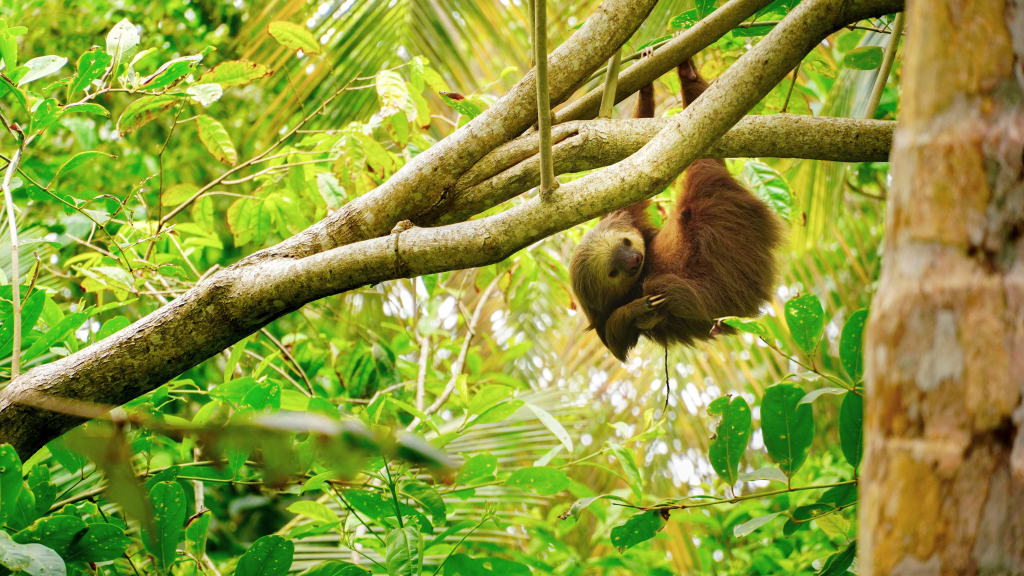
Ecotourism is becoming more and more popular, and one of the reasons is that the new generations are no longer just looking for to the next destination, but to travel with purpose.
If you are looking for new life experiences, to learn about other ways of living and meet like-minded people, stay tuned for great ideas. From supporting local communities to protecting nature and fighting climate change, this different form of travel is a whole new way of looking at packing and setting off on a new adventure.
What is ecotourism?
Travel to natural areas is a great opportunity to discover amazing landscapes, but it can also help preserve delicate ecosystems, provide economic benefits to local communities and promote conservation efforts.
To fully realize the potential of ecotourism, minimal environmental impact and stable and equitable economic growth must be paramount. Ecotourism is also an exciting option for your next volunteer experience with Worldpackers. Where you can visit ecological projects with the added bonus of supporting local communities.
You can practice ecotourism now, by supporting local businesses and having an eco-friendly mindset. But you can also be part of a larger community with different projects and causes. These practices help protect nature for future generations while making a positive impact.

This form of tourism focuses on environmental conservation and responsible travel practices. It involves visiting national parks to observe wildlife, learn about local cultures, and appreciate the beauty of nature. And if you are an outdoor enthusiast, ecotourism can include activities like hiking, camping, bird watching, and kayaking.
When traveling with an eco-friendly mindset it’s important to remember that your actions have consequences. This means being mindful of how you interact with the environment around you, from avoiding littering to respecting cultural customs, these actions benefit everyone involved -including yourself.
Keep reading: Discover India's top 3 best ecotourism
The benefits of ecotourism
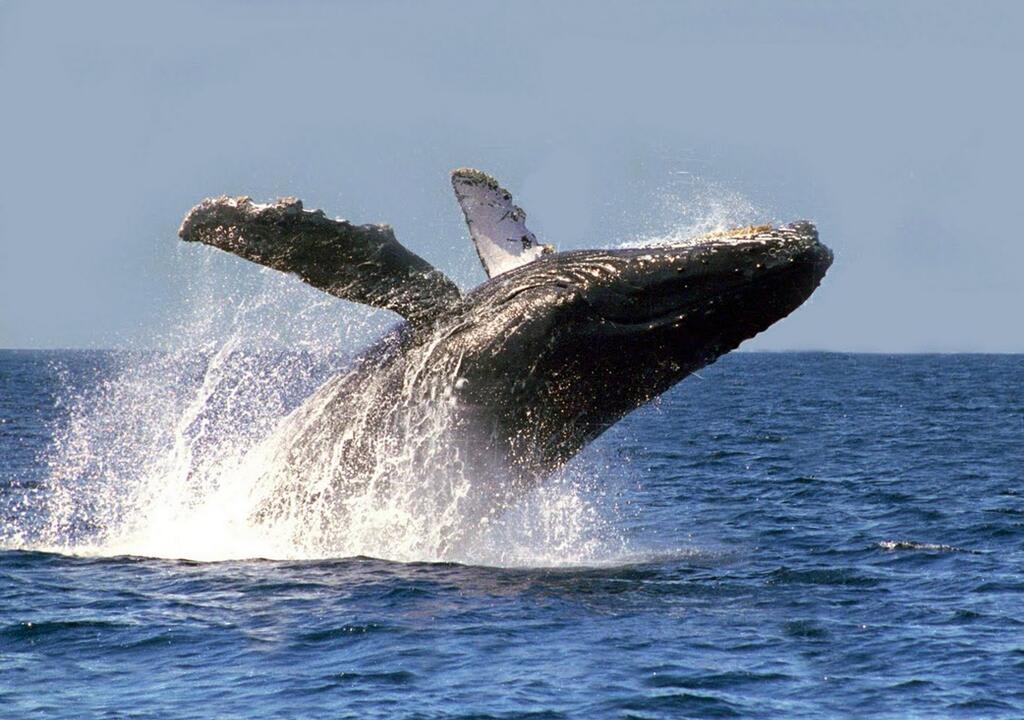
Travelers want to explore nature while minimizing their impact on the environment. One of the main benefits of ecotourism is that it reduces pollution and waste by promoting responsible use of natural resources. By limiting energy consumption, using renewable sources such as solar power, and avoiding single-use plastic, ecotourists help protect ecosystems from further damage.
But ecotourism can bring many benefits to both travelers and local communities. It can help support local economies by creating jobs and income opportunities for people living near touristic destinations. And in the other hand, ecotourists have the opportunity to learn more about a culture’s customs, beliefs, language, and food habits. This helps travellers to gain an understanding of different perspectives from around the globe.
Another benefit of ecotourism is that it educates travelers about the importance of preserving nature and protecting wildlife habitats. Through guided tours or volunteer programs, visitors can learn more about the environment they are visiting while helping with conservation efforts such as beach cleanups or tree planting initiatives. This type of education can be invaluable in raising awareness about global issues related to climate change or endangered species conservation.
How ecotourism benefits local communities

Ecotourism has the potential to benefit local communities in many ways, from creating jobs and boosting the economy to conserving natural resources. With responsible ecotourism practices, travelers can ensure that their impact is positive and meaningful.
Whether you’re backpacking through South America or trekking through Asia, choosing ecotourism can provide economic opportunities for local communities by creating jobs in hospitality, conservation, and other related fields. These jobs can help reduce poverty levels and improve the quality of life for locals. Instead of opting for large hotel or restaurant chains where sustainability may not be a top priority, opt for smaller establishments. That way, you'll help ensure that your money goes to those who are actively working to protect the environment, rather than just exploiting it for profit.
Ecotourism also promotes sustainable development by providing funds for conservation projects that benefit both people and wildlife. For example, ecotourism can provide funds for the protection of endangered species or develop educational programs about the importance of protecting natural resources. In addition, ecotourism companies often use locally sourced materials when building facilities such as lodges or hiking trails, which boosts the local economy.
How ecotourism benefits the environment
A good example of this is visiting national parks or other protected areas: Be careful not to disturb plants or animals by sticking only to designated trails and paths. Also, do not leave behind litter such as plastic bottles or packaging, as these can damage the local ecosystem if not removed.
Responsible ecotourism has proven to be beneficial in reducing negative impacts on local ecosystems such as deforestation or pollution from tourist activities like fishing or camping without proper waste disposal. Educating tourists on how to behave responsibly during their visit will ensure that these areas remain protected.
The main principles of ecotourism
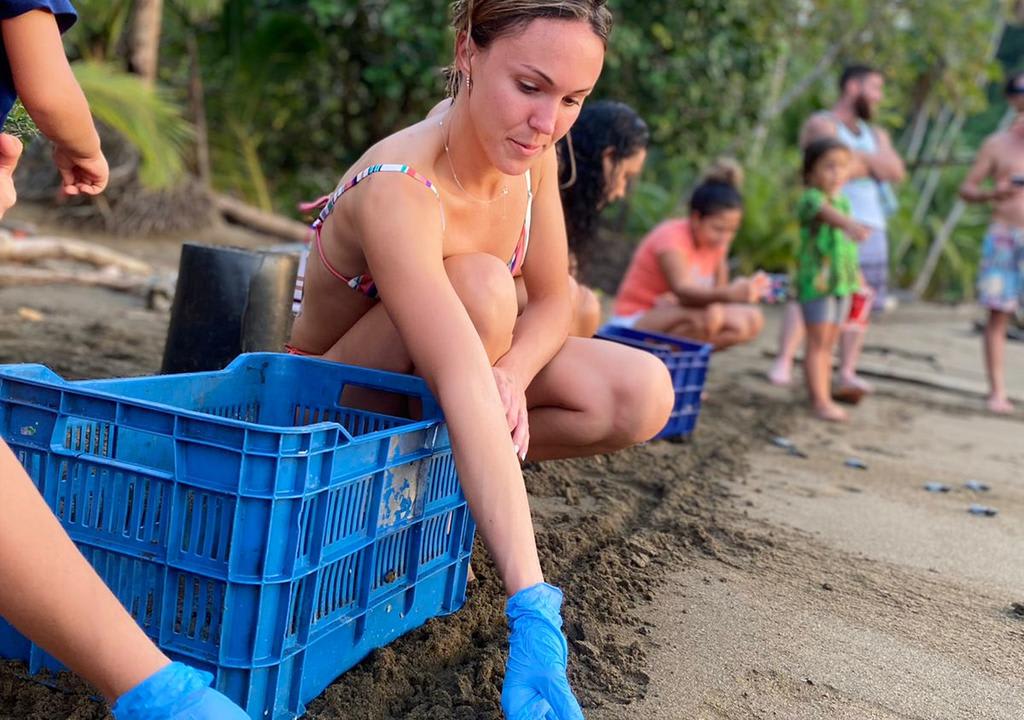
1. Respect the local culture
Respect the customs, beliefs, and traditions of locals wherever you go. This includes dressing appropriately at religious sites, not taking photos without people's permission, and being mindful of cultural sensitivities when it comes to food or language.
2. Support local businesses
Whenever possible, try to support local businesses by buying locally made products or eating at restaurants run by locals rather than large chains or resorts. Not only does this help keep money in the community, but it’s also a great way to have an authentic experience that you wouldn’t find elsewhere.
3. Do not take souvenirs from protected areas
When visiting natural areas like national parks always remember to take your trash with you when leaving – never leave anything behind. Also, do not take souvenirs from protected areas as this can have negative impacts on wildlife habitats and ecosystems over time.
4. Use sustainable transportation
When possible, opt for more sustainable modes of transportation such as cycling or walking instead of driving, which produce harmful emissions into the atmosphere – plus, they’re usually cheaper too.
These small changes can make a big difference when it comes to preserving our planet's resources. By following these tips for responsible ecotourism, you can ensure that your travels have a positive impact on the environment and local communities.
Why should you choose ecotourism?
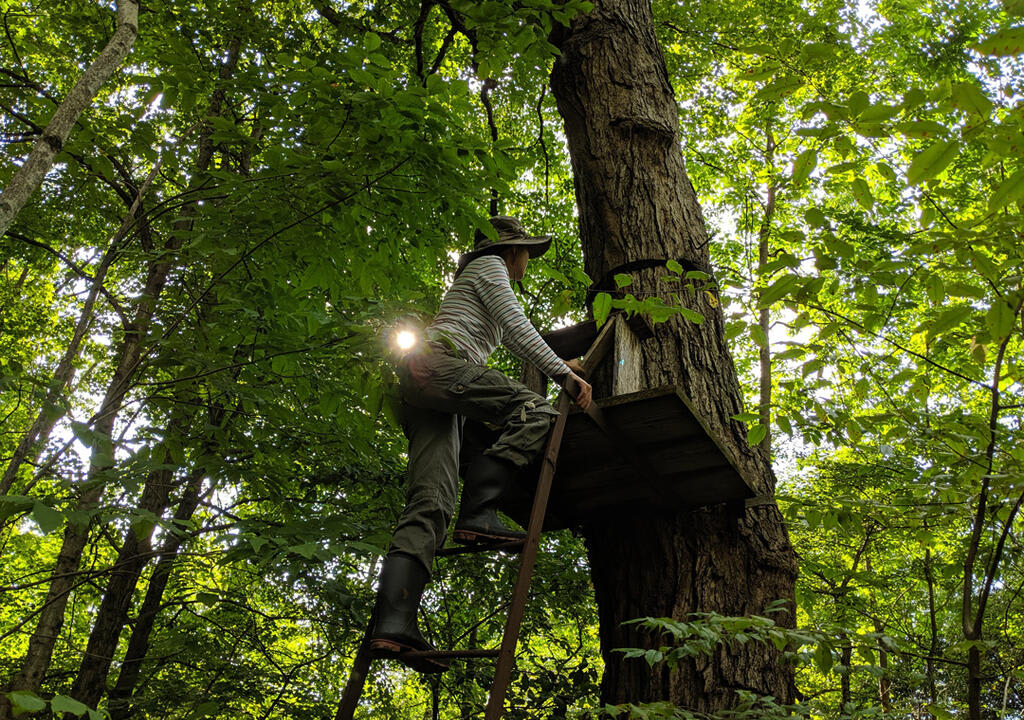
Ecotourism is an opportunity to explore beautiful places while learning about local cultures, customs, and traditions. But besides that, choosing this type of tourism can also help protect natural resources. It is possible to reduce your carbon footprint by minimizing energy consumption during your travels, as well as helping preserve wildlife habitats and ecosystems for future generations to enjoy.
Ecotourists often have the opportunity to participate in meaningful activities, such as volunteering with conservation efforts or participating in educational workshops on sustainability practices. Ecotourism also helps create jobs for locals by providing them with employment opportunities related to tourism services like guiding or transportation.
Before embarking on your next trip, research the destination thoroughly so that you know what kind of environmental regulations are in place. This way, you can ensure that your visit will not negatively affect the environment or disrupt animal habitats unnecessarily.
It is also important to be mindful when interacting with wildlife - never feed wild animals (even if they seem friendly). This could out them in dangerous situations where they rely on humans instead of finding their own food sources. It is also important to always respect local customs and laws; be aware that some activities may be prohibited depending on the destination, so make sure you understand all relevant rules before engaging in any activity.
Read more on how to be a conscious traveler and how to find ecotourism jobs.
Disadvantages of ecotourism
While ecotourism has many benefits, it can also have negative impacts if not well managed. Travellers who want to travel responsibly can choose from a variety of ecotourism destinations. But these beautiful natural parks and desert beaches are seen as profit opportunities by some companiers and may face overtourism. Other drawback is the greenwashing. Many companies, resorts and restaurants advertise being sustainable, but in reality do nothing for the environment or local communities.
This is why it is so important to -not only choose ecotourism, but also to be a responsible traveller and ask questions. Among the potential disadvantages of ecotourism are the exploitation and displacement of local communities. They may benefit little from tourism and be exposed to negative impacts, such as increased traffic and noise. As operators prioritise profit over conservation, communities may also be forced to relocate to make way for tourism-related infrastructure.
Ecotourism volunteering with Worldpackers

Participating in volunteer programs during your travels often involves helping out in conservation areas, such as wildlife sanctuaries or reforestation efforts that directly benefit communities and the environment. Volunteering with Worldpackers allows you to gain valuable experience and develop new skills while making a positive impact on your community.
Ecotourism is a form of responsible travel that focuses on preserving the environment and creating sustainable livelihoods for local communities. Through ecotourism, travelers can enjoy unique experiences while helping to protect nature and support local economies. Volunteers are also encouraged to visit natural areas such as national parks or wildlife reserves to learn more about and respect nature. By visiting these places, ecotourists can help protect them from destruction while providing much-needed economic support for conservation efforts
The process of finding a volunteering opportunity with Worldpackers is simple. First, you can create a profile on the platform and indicate your areas of interest and skills. Then, you can browse the available opportunities, and once you find one that matches your interests, you can become a verified member and reach out to the host to discuss details and make arrangements.
Volunteering with ecotourism in Costa Rica
Costa Rica is one of the most important destinations for ecotourism, and ideal for animal lovers. It’s a tropical destination with rainforests, countless beaches, volcanoes, and mountains. The ‘pura vida’ lifestyle, means pure life—and is the true philosophy of Costa Rica.
With Worldpackers volunteer opportunities in Costa Rica, you can work on projects to protect sea turtles and rescued and endangered species, such as feeding and caring for animals, cleaning enclosures, and assisting with rehabilitation and release programs.
This eco-village in Drake Bay is looking for help to build its agro-ecological farm and produce organic food through regenerative agriculture and hydroponics. They are looking for volunteers with green fingers who want to learn how to produce bio-inputs, such as soil, fertilizers, repellents and microorganisms, and how to process and prepare food. Volunteers are staying in a purpose-built station and can use any of the facilities at the property.

Volunteering with ecotourism in Kenya
Ecotourism in Kenya is a great opportunity to help with community development projects, such as building schools and promoting eco-friendly tourism. With Worldpackers volunteer programs, you can develop new skills while participating in teaching programs in Nairobi.
Since Kenya is home to more than 50 national parks, you can immerse yourself in nature or wildlife while volunteering. Travelers often go to Kenya in hopes of meeting ‘The Big 5’, and this has encouraged the government to stop illegal poaching, ban single-use plastic and plastic bags, while promoting sustainable tourism.
Volunteering with ecotourism in Norway
The opportunity to volunteer with ecotourism in Norway is for nature enthusiasts. It offers the chance to work in national parks, promoting sustainable tourism and conservation efforts. Volunteer tasks may include trail maintenance, wildlife monitoring, and visitor education.
You can also experience the Fjords while helping to grow vegetables on a small farm and in a greenhouse.
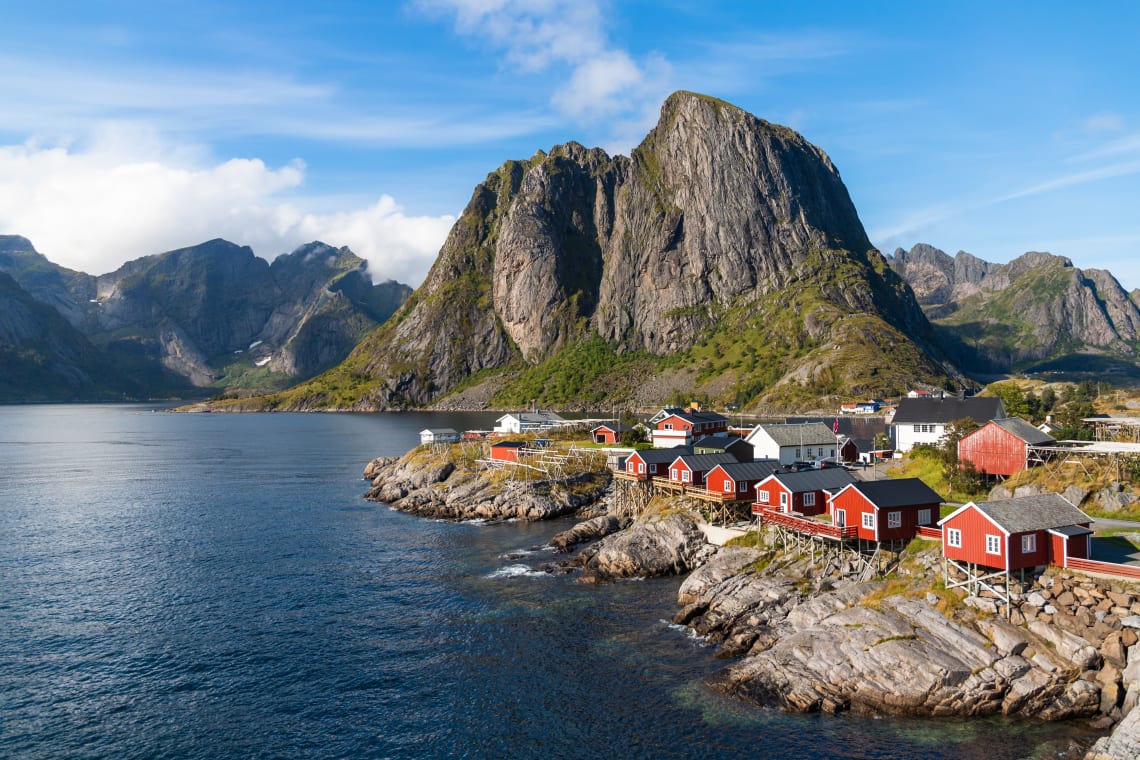
Volunteering with Ecotourism in the Amazon rainforest
The traditional peoples and the Amazon rainforest are daily resisting. For years they have resisted burning and deforestation, land grabbing and lack of public policies. As a volunteer in Amazonas, you can develop new skills in a cultural space in Presidente Figueiredo. Close to waterfalls and the people who live near the Amazon River.
If you choose to volunteer with ecotourism options, you can have unique experiences not available anywhere else in the world - from trekking through remote jungle areas to snorkeling among coral reefs teeming with life. Such activities give visitors the opportunity to reconnect with nature while creating lasting memories in some truly spectacular locations around the globe with Worldpackers. Did you like these ideas? Subscribe to the Worldpackers Community for free and start saving your favorite volunteer positions until you are ready to get verified.












Mohammad
May 31, 2023
Hi